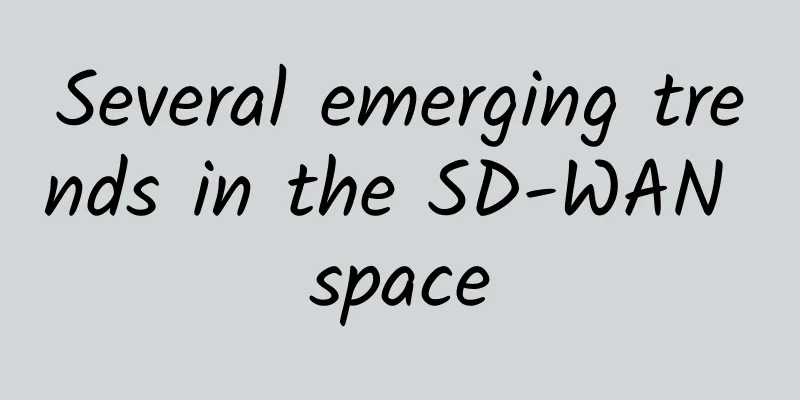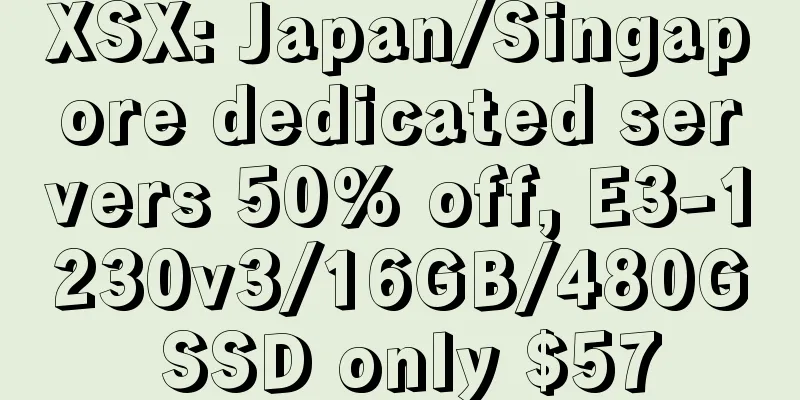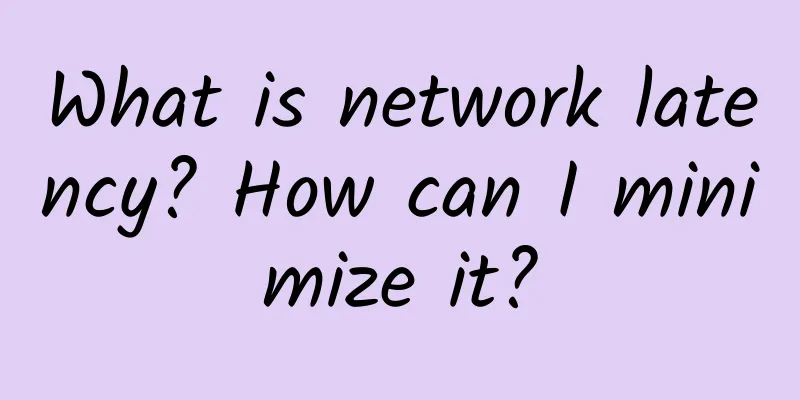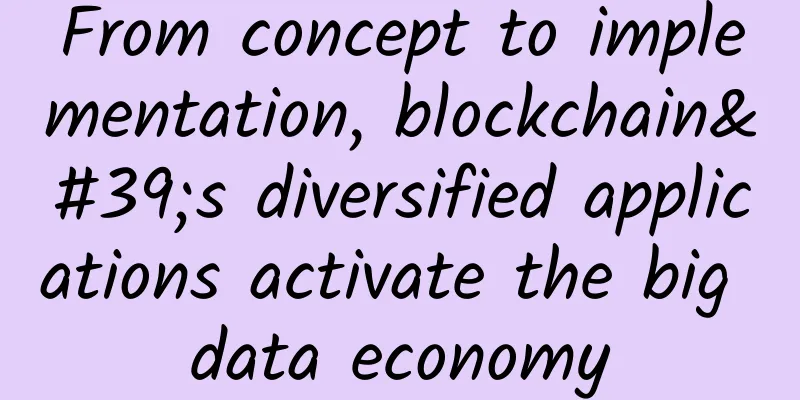Taking stock of Internet companies that have deployed blockchain: Is blockchain a "panacea" or a "scam"?
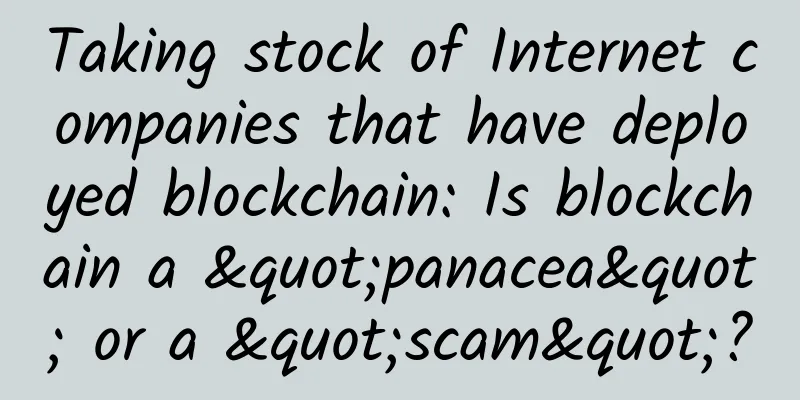
|
Bitcoin was launched in 2009. As the price of Bitcoin skyrocketed, its underlying technology, “blockchain”, gradually emerged and entered people’s field of vision. 2017 can be regarded as the first year of blockchain technology application. The Bitcoin craze and the rush to issue various digital currencies have made blockchain technology completely popular in the eyes of the public, attracting giants such as Deloitte, Goldman Sachs, Citi, Nasdaq, Xunlei and 360 to invest in it. In this regard, this article reviews the domestic Internet companies that have already started to invest in blockchain.
1. Xunlei——Chaink Xunlei can be said to be the leader in the layout of blockchain among domestic enterprises. In August 2017, Xunlei launched Chainlink (formerly known as "Wanke Coin"), which is a virtual digital asset used to motivate users. Users share bandwidth, storage and computing power through Wanke Cloud smart hardware to obtain rewards for participating in shared computing and contributing idle resources. In terms of usage, Chainlink is mainly used to exchange network acceleration services within the Xunlei system, such as games, videos, live broadcasts, downloads, etc. It is reported that it will also be gradually applied to business scenarios such as Xunlei Live, Xunlei Escort, and Xunlei U-Share Edition in the future. Although the Chainlink Wanke Coin has driven Xunlei's stock price to soar, questions such as whether Chainlink really uses blockchain technology, whether it provides users with a "transaction" path, and whether it complies with ICO regulations have also put Xunlei at the forefront. After narrowly avoiding the regulatory red line in December, Xunlei quickly changed its name and clarified the outside world's doubts about the nature of blockchain digital assets and Chainlink, erasing the words "coin" and "wallet", making Chainlink a simple exchange medium for shared resources and various value-added services. On January 12, the China Internet Finance Association issued a document stating that a model called "issuing virtual digital assets with mining machines as the core" (IMO) represented by Xunlei's "Chaink" is worthy of vigilance. The China Internet Finance Association stated that, taking Xunlei's "Chaink" as an example, the issuing company actually used "Chaink" to replace the obligation to pay for the services contributed by the participants. It is essentially a financing behavior and a disguised ICO. On January 16, the Xunlei Wanke Cloud team issued an announcement that it will release a new version of the APP on the 25th of this month and stop providing Xunlei's Chaink pocket transfer service. Affected by this, Xunlei Stock (XNET.O) fell 27.38%. 2. Baofeng - Boku Cloud Following closely behind Xunlei, Baofeng Video launched Baofeng KuBo Cloud in December 2017. Boku Cloud costs as much as 5,999 yuan. According to the official introduction, the idle storage space and bandwidth of the product can be used to earn BFC points. It can provide storage and bandwidth support for large files for Baofeng series software and third-party CDN services. It also supports the deployment of third-party blockchain networks and even serves as a full node of third-party blockchain networks. It is said that the first batch of 2,000 units were sold out within 5 minutes. Although Baofeng was very reluctant, the outside world has been comparing "Boku Cloud" with Xunlei's "Chaink". In an interview, Baofeng New Film CEO Cui Tianlong denied the outside world's claim that the business is similar to Xunlei's, emphasizing that Baofeng's goal is "full-node blockchain deployment to bring industry infrastructure construction capabilities, and then become a platform provider and underlying technology exporter for the blockchain industry." 3. Renren.com - Renrenfang After seeing its peers’ transformation into blockchain and stock market surge, Renren, which had not been seen for a long time, also announced that it would enter the blockchain. Renren fantasized about making a great comeback, but in reality it encountered setbacks everywhere. On January 2, Renren released the RRCoin white paper, announcing that it would provide an open source blockchain platform for social networks - Renrenfang, establish the RRCoin Foundation, and launch the token RRCoin to provide an operating medium for the platform's smart contracts and transaction behaviors, which will be used in live broadcasts, commercial promotions, social games, wallet applications and other scenarios. Users, PGCs, developers, advertisers, platform parties, etc. can all obtain or pay RRCoin in the system. According to reports, there are 1 billion RR Coins, of which 40% will be used for private placement, 25% for the RR Coin Fund (the fund is responsible for technology development and platform operations), 15% of the tokens will be given to market operations and R&D teams, and 20% of the tokens will be used for community business cooperation. After the news was made public, Renren's stock price continued to rise on January 2 and 3, with the cumulative increase in two trading days reaching 76%. The closing price on January 3 was US$18.32. However, on January 8, Renren was summoned by the regulatory authorities for questioning. Since then, there have been rumors in the market that "RR Coin project has been confirmed to fail, and private placements are currently notifying the return of coins." After the regulatory interview, Renren's stock price also fell. 4. NetEase Lucky Cat - Blockchain pet game Recently, some netizens revealed that NetEase has also begun to layout the blockchain field and released the digital pet "NetEase Lucky Cat". According to relevant media reports, the blockchain game that NetEase is going to release should be a pet based on blockchain technology and traded in digital currency, similar to Ethereum's "blockchain cat game" - "CryptoKitties". However, there is news that the "NetEase Lucky Cat" blockchain product project that NetEase has laid out has been aborted. According to Bianews, the NetEase Lucky Cat project team issued an announcement saying: "The internal test of NetEase Interactive Entertainment has ended. Please fill in your real name and bank card number before 23:59:59 on January 19, 2018. The funds will be tested in the bank account later. Please make sure that the account you fill in is your own account. Once the test funds are received, they will be deemed to be returned." 5. 360 – Shared Cloud On January 9, 360 announced the launch of the shared cloud plan, which officials said was the world's first secure shared cloud platform based on blockchain. Users share idle bandwidth resources, computing resources, and storage space through 360 shared cloud products and provide them to people in need. They can receive 360 Cloud Diamond rewards based on the loan flow and storage size contributed by the users. In addition, 360 will also launch a shared cloud router and a supporting APP in the future, which will allow users to monitor the working status and check the cloud diamond income at any time. As for whether 360 routers can mine, there is no official news. 6. BAT - Be cautious As blockchain technology becomes increasingly popular, news about Baidu, Alibaba and Tencent getting involved in this field has been heard from time to time, but the three giants are very cautious about the rumors. On January 12, it was reported that Baidu launched the blockchain open platform "BaaS", with the website address chain.baidu.com. Baidu Finance responded that the platform was launched on July 21, 2017, and has currently supported the authenticity of assets worth more than 50 billion yuan. In January, Tencent issued a statement regarding some institutions and individuals who were engaged in token issuance or trading activities under the banner of cooperation with Tencent Blockchain: Tencent Blockchain is a completely self-developed blockchain underlying technology, and has been committed to building a blockchain open service platform to solve the trust problem between commercial enterprises. Tencent Blockchain has never participated in any form of token issuance or trading related activities, nor has it cooperated with any institution in this regard. Late at night on January 17, Alibaba Cloud issued a statement on its official Weibo account, saying that the company would never issue virtual currencies such as Bitcoin, nor would it provide any so-called "mining platform." Alibaba Cloud said that the reports about Alibaba launching a P2P node for a mining platform were untrue, and Alibaba Cloud would pursue legal responsibility for the false reports. Looking back at the development of blockchain in 2017, it is not difficult to find that as long as a company is labeled with blockchain technology, its stock price will rise rapidly. Old Internet companies try to use it to turn things around, and new technology companies want to use it to make enough hype to increase their stock prices and valuations. However, is blockchain a panacea or a "scam"? Time will tell. |
>>: Why is the world crazy about blockchain? Because of a "wealth code"
Recommend
Only 91 base stations were built in two years. Why is 5G millimeter wave so difficult?
[[405114]] This article is reprinted from the WeC...
How to determine whether two IP addresses are in the same network segment? What is a subnet mask?
We have read many articles before about IP addres...
What is the first step that the Industrial Internet must take?
As we all know, Ethernet has become the most wide...
Encyclopedia | What is structured cabling?
What is structured cabling? In short, it is a sta...
VIAVI attended the 19th China Optical Network Symposium and China FTTH Forum
Beijing, China, June 13, 2019 - VIAVI Solutions (...
Aruba Launches New EdgeConnect Microbranch Solution to Power a Modern Hybrid Workplace Experience
Aruba, a Hewlett Packard Enterprise company (NYSE...
Aruba and China Telecom Global form strategic partnership to help Chinese companies expand overseas
Aruba, a subsidiary of Hewlett Packard Enterprise...
Voice message application series——Unlimited message listening assistant
who I am Hello everyone, my name is NGCSS (Next G...
Wi-Fi 7 domestic standard is about to be implemented! The Ministry of Industry and Information Technology solicits opinions on equipment approval, and the measured network speed reaches 4.3Gbps
On June 2, it was reported that the technical sta...
The three major operators have completed the deployment of IMS network interconnection and 2G/3G network withdrawal has been accelerated
Recently, the three major operators completed the...
Quantum computing is always mixed, which requires constant coordination
The modern computing revolution was driven by the...
How to view the doomed failure of 5G network from a metaphysical perspective
It's time, fate, luck, and not 5G... Some thi...
51CTO Community Thousands of Developers Interacted: Five Challenges Need to Be Unlocked Before AI Can Become a Reality
[51CTO.com original article] Which technology is ...
Some works of the first 51CTO Developer Competition have been revealed, waiting for you to add to it!
/* Live to change the world Here, every work may ...
What will 5G technology bring to the three major operators?
Recently, against the backdrop of ZTE being sanct...

